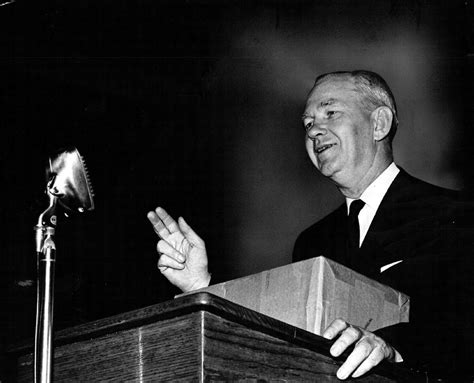A Quote by Chuck Schumer
You know, we have three branches of government. We have a House. We have a Senate. We have a President.
Related Quotes
The constitution has divided the powers of government into three branches, Legislative, Executive and Judiciary, lodging each with a distinct magistracy. The Legislative it has given completely to the Senate and House of Representatives. It has declared that the Executive powers shall be vested in the President, submitting special articles of it to a negative by the Senate, and it has vested the Judiciary power in the courts of justice, with certain exceptions also in favor of the Senate.
We've never had our injustices rectified from the top, from the president or Congress, or the Supreme Court, no matter what we learned in junior high school about how we have three branches of government, and we have checks and balances, and what a lovely system. No. The changes, important changes that we've had in history, have not come from those three branches of government. They have reacted to social movements.
The three branches of government number considerably more than three and are not, in any sense, 'branches' since that would imply that there is something they are all attached to besides self-aggrandizement and our pocketbooks. ... Government is not a machine with parts; it's an organism. When does an intestine quit being an intestine and start becoming an asshole?
'Elections have consequences,' President Obama said, setting his new policy agenda just three days after taking office in 2009. Three elections later, the president's party has lost 70 House seats and 14 Senate seats. The job of Republicans now is to govern with the confidence that elections do have consequences, promptly passing the conservative reform the voters have demanded.
The Democrats are angry, and they're out of their minds. You know, we're seeing in the Senate, the Senate Democrats objecting to every single thing. They're boycotting committee meetings. They're refusing to show up. They're foaming at the mouth, practically. And really, you know, where their anger is directed, it's not at Republicans. Their anger is directed at the American people. They're angry with the voters, how dare you vote in a Republican president, Donald Trump, a Republican Senate, a Republican House.
President Bush, whose scorn for journalists is balanced by a soft spot in his heart for the conglomerates they work for, threatens to veto the Senate action. Keep in mind that when the public was asked to submit comments to the FCC about consolidation, only one percent approved it. The President may not be listening, but the Senate is, and the public won this round. The House has a similar resolution under consideration.
This is a president [Barack Obama] who came into office in 2008 with a big majority in the House and with a filibuster-proof majority in the Senate. Because of his policies and his conduct in office, seven years later, we have our largest majority in the House since 1928, and we have a majority in the Senate and we have 31 of the 60 governorships.

































